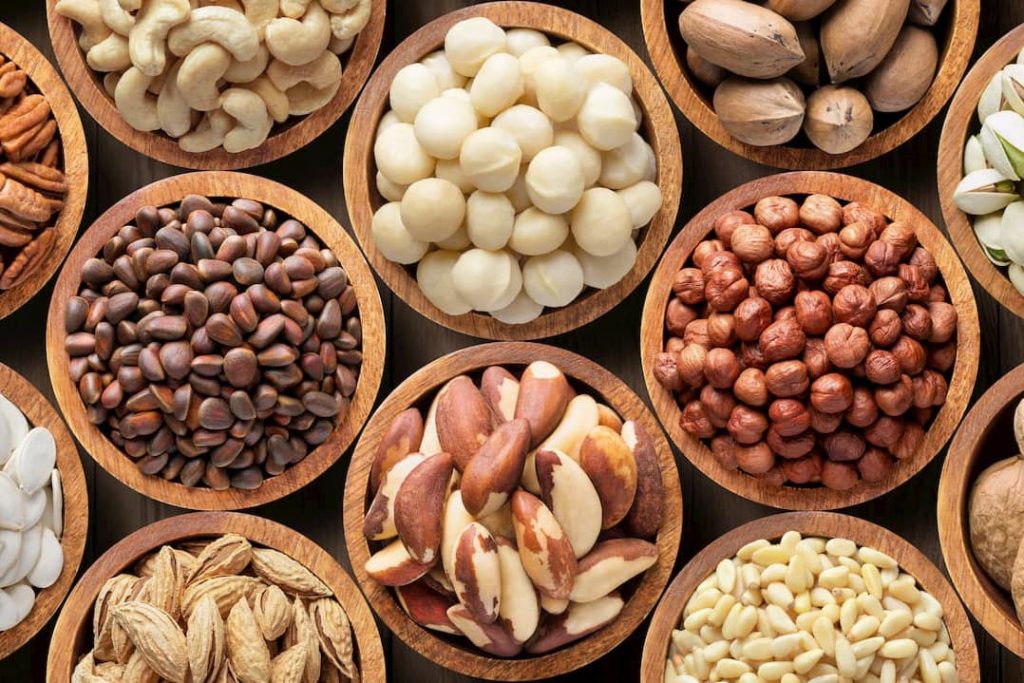Feeding your baby
Summary
Your first breastfeed with your newborn happens as soon as is possible after birth. This precious time is an opportunity to bond with your new baby and gives them ‘colostrum’, a miraculous superfood that you produce in the first few days after birth. Breastfeeding is not always easy, but there’s lots of support available.
First food
Breastfeeding is a natural way to nourish your newborn and it starts to build your unique bond. Shortly after your baby is delivered, your midwife should be on hand to help you give them their first feed. Amazingly they can smell your breast milk and will ‘root’ around trying to find it, opening their mouth when their lips are touched1. Feeding correctly takes practice and can be sore at first, especially if the baby isn’t latching on correctly. Getting into a comfortable position is also essential to success. Ask your midwife for help with your technique and you’ll soon get the hang of it. It’s reassuring to know that, once you’ve mastered it, breastfeeding should be pain-free and easy. You can read more about good positions and tips for latching on in our guide to successful breastfeeding.
How often do I need to breastfeed?
Many new mums worry that their baby is not getting enough milk, but in the first few days, your newborn will only need a few teaspoons of colostrum a day as their tummy is about the size of a marble2. Despite this, they may well feed every hour and it’s perfectly normal for your baby to lose up to 10% of their birthweight in the first week through fluid loss. By the end of the second week, they usually will have regained this weight and will start to grow steadily. Read more about how to tell if your baby is getting enough breast milk.
During night feeds your body produces more of the hormone ‘prolactin’, which builds up your milk supply3.
Let your baby lead
Don’t worry too much about trying to establish a newborn feeding schedule. For the first few months at least, you’re advised to feed your baby ‘responsively’. There won’t be a set pattern, but you’ll soon pick up on the signs that they’re hungry. Signs include sucking their fists, crying, and opening their mouth while turning their head expectantly. Let them feed for as long as they want to, making sure they have completely emptied your breast before moving on to the other one. Remember, you can’t overfeed a breastfed baby.
As your newborn has no sense of time, they will need to feed regularly during the night at first, so don’t expect to get much sleep, and rest as often as you can.
Winding
Winding will help to expel any trapped air in your baby’s stomach which can cause discomfort. As a general guide, you need to:
- Keep your baby’s stomach and spine straight, not curled up
- Support their head and neck
- Gently rub their back in an upward motion
- Keep a muslin cloth handy for ‘possets’ (milky burps)
Colostrum
Colostrum is a highly nutritious, concentrated milk that you produce in the first days after birth. It’s thick, yellow in colour and is full of important antibodies and immunoglobulins to help strengthen your baby’s immune system. Your newborn will only need tiny amounts, as their stomach is very small.
When does milk ‘come in’?
At around two to four days after birth, your breasts will feel fuller as you start to produce larger quantities of breast milk. At the start of every feed, you will produce ‘foremilk’ – a thin, thirst-quenching liquid, which keeps your baby hydrated. As your baby continues to feed, they will reach the ‘hindmilk’; this is thicker, more nutritious, higher in calories and will keep them fuller for longer. That’s why it’s important that your baby fully empties your breast before moving on to the next one.
Did you know breast milk adapts to your baby?
Breast milk is a truly amazing food. It not only changes its composition to meet the growing needs of your baby, it even contains different levels of calories, depending on whether you have a boy or a girl. Read more about the wonders of breast milk.
The benefits of breastfeeding
Breast milk is perfectly adapted to your baby’s nutritional needs, providing just the right amounts of vitamins, minerals, fats and proteins to help them grow. Here are just some of the benefits of breast milk and breastfeeding:
Breast milk
- Contains all the nutrients your baby needs for the first six months of life
- Provides antibodies to boost their immune system
- Reduces the chances of your baby developing infections like stomach bugs
- Is exactly the right temperature for your baby
- Helps you bond
Breastfeeding
- Reduces a mother’s risk of ovarian and breast cancer
- Requires no equipment or cost
- Can burn up to 500 calories per day, helping you to naturally return to your pre-pregnancy weight
Common concerns
It’s very common for mums to have difficulties breastfeeding at first, but most problems can be solved with the help of your midwife or healthcare professional. Here are some common concerns, and their solutions:
| What’s the concern? | What you can do to help |
|---|---|
| Baby is feeding little and often | Cluster feeding is normal at first, but feeds should space out as your baby grows. |
| Cracked, sore or bleeding nipples | Ask your healthcare professional or GP to make sure your baby is latching on correctly. You can also try hand-expressing a few drops of breast milk after feeding and putting this on nipples. Avoid soap, let air get to your breasts and apply lanolin cream4. |
| Engorgement | Put baby to breast to relieve the pressure, and check your baby is attached and feeding effectively. If you are too engorged for them to latch, try expressing milk or taking a hot shower to encourage milk let-down. For more advice and support, contact your healthcare professional. |
| Mastitis | If you experience hot, tender breasts and cold or flu-like symptoms, you may have mastitis. It can make you feel very weak and even lead to serious infection, so is often treated with antibiotics. Contact your doctor as soon as possible. |
| Thrush | Talk to your midwife, health visitor or GP as they can check to see if you have thrush and prescribe appropriate treatment, but it’s fine to continue feeding. |
Next Steps
Eating well is really important for staying healthy and ensuring your baby gets the right nutrients from your breast milk. Find out what makes a well-balanced breastfeeding diet.
Breastfeeding is the most important skill you can master in the early days. Your midwife will have plenty of tips and techniques to make it easier – make the most of their help while you can.
In the early days – and nights – most of your energy will go into breastfeeding. Make sure you ask your partner, family and friends to support you with other chores, including nappy changes, so you can rest as much as possible.
In the future you might want to try expressing breast milk so that your partner can take turns doing feeds. Read our guide to expressing and storing breast milk safely.
- NHS. Breastfeeding: Positioning and attachment [Online]. 2016. Available at: http://www.nhs.uk/Conditions/pregnancy-and-baby/Pages/breastfeeding-positioning-attachment.aspx [Accessed March 2017]
- NHS. Breastfeeding: The first few days [Online]. 2016. Available at: http://www.nhs.uk/Conditions/pregnancy-and-baby/Pages/breastfeeding-first-days.aspx [Accessed March 2017]
- Tay CCJC et al. Twenty-four hour patterns of prolactin secretion during lactation and the relationship to suckling and the resumption of fertility in breast-feeding women. Human Reprod 1996;11(5):950-55.
- NHS. Sore or cracked nipples when breastfeeding [Online]. 2016. Available at: http://www.nhs.uk/Conditions/pregnancy-and-baby/Pages/sore-cracked-nipples-breastfeeding.aspx [Accessed March 2017]
Further Reading
Learn about the signs to look for, which foods are most likely to trigger a reaction, how and when to introduce allergenic foods safely.
After 6 months old, if you’d like to make your own baby food from scratch, we’ll show you how to give your baby all the nutrients they need.
جهة الاتصال غير متوفرة




